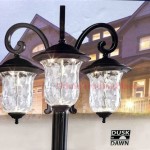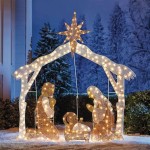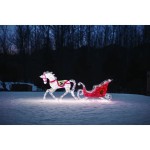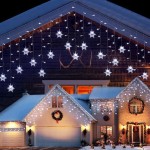Should You Keep Your Outdoor Lights On at Night?
The decision of whether to keep outdoor lights on at night is a common dilemma for homeowners. While the benefits of added security and illumination are undeniable, there are also considerations regarding energy consumption, light pollution, and potential harm to wildlife. This article will delve into the factors to weigh when deciding whether to leave your outdoor lights on at night, exploring both the pros and cons of each approach.
Security and Safety benefits
One of the most significant benefits of leaving outdoor lights on at night is the enhanced security it provides. Bright lights can deter potential intruders, making your property less attractive to criminals. Adequate lighting can also improve visibility around your home, reducing the risks of accidents and falls, especially in poorly lit areas like walkways and driveways. This can be particularly important for elderly residents or families with young children. In addition to deterring crime and improving safety, outdoor lights can also provide a sense of comfort and security for homeowners, especially during dark or inclement weather. This psychological reassurance can contribute to a feeling of safety and well-being within the home.
Energy Consumption and Environmental Impacts
The primary drawback of leaving outdoor lights on at night is the increased energy consumption. This can lead to higher electricity bills, particularly if multiple lights are left on for extended periods. Furthermore, the energy used to power these lights often comes from fossil fuels, contributing to greenhouse gas emissions and environmental pollution. In addition to the direct energy impact, outdoor lighting can also contribute to light pollution, which disrupts natural nighttime cycles. This can negatively affect both wildlife and human health, interfering with the natural sleep patterns of humans and disrupting the behaviour of nocturnal animals.
Wildlife and Ecosystem Impacts
Artificial light at night can have a significant impact on wildlife, especially nocturnal animals. Many species rely on darkness for navigation, hunting, and mating. Artificial lights can disorient these animals, making them more vulnerable to predators or accidents. For example, light pollution can attract insects to brightly lit areas, disrupting their natural flight patterns and making them more susceptible to predation. This can have cascading effects on the food web, impacting other animals that rely on insects as a food source. In addition to disrupting navigation and attracting insects, artificial light can also interfere with the migration patterns of birds, leading them off course and potentially causing collisions with buildings.
Alternatives to Keeping Lights On
There are several alternatives to leaving outdoor lights on all night that can still provide security and illumination without the associated drawbacks. Motion-activated lights are a popular choice, as they only turn on when triggered by movement, reducing energy consumption and minimizing light pollution. Timers can also be used to schedule outdoor lights to turn on and off at specific times, providing illumination when needed without staying on unnecessarily. Investing in energy-efficient LED bulbs can further reduce energy consumption and minimize the environmental impact of outdoor lighting. For areas that require constant illumination, selecting lights with low wattage and diffusers can help minimize light pollution and minimize the impact on wildlife.
Choosing the Right Approach
The decision of whether to keep outdoor lights on at night is not a one-size-fits-all answer. The optimal approach will vary depending on individual circumstances and priorities. Homeowners should carefully consider the benefits and drawbacks of each option, taking into account factors such as security concerns, energy costs, environmental impact, and the presence of wildlife in their area. By carefully weighing these factors, homeowners can make an informed decision that balances the need for safety and convenience with the environmental and wildlife considerations associated with outdoor lighting.

Porch Light Safety Leave It On Or Turn Off Safewise

Solved Should You Leave Your Porch Light On At Night Bob Vila

Outdoor Lighting Living In The Land Between Series

Can You Leave Your Lights On Overnight Find Out With Green Force Outdoor Light

6 Reasons You Should Leave The Holiday Lighting To Pros

Do You Need To Put Away Your Outdoor Lights In The Winter

The 3 Best Smart Outdoor Lights For Backyards Of 2024 Reviews By Wirecutter

How To Illuminate Architectural Features Creative Nightscapes

Augusta Garden Lighting Outdoor Perspectives Of

Great Outdoor Lighting Projects To Put The Style In Your Lifestyle Gillespie Electric Inc
Related Posts







